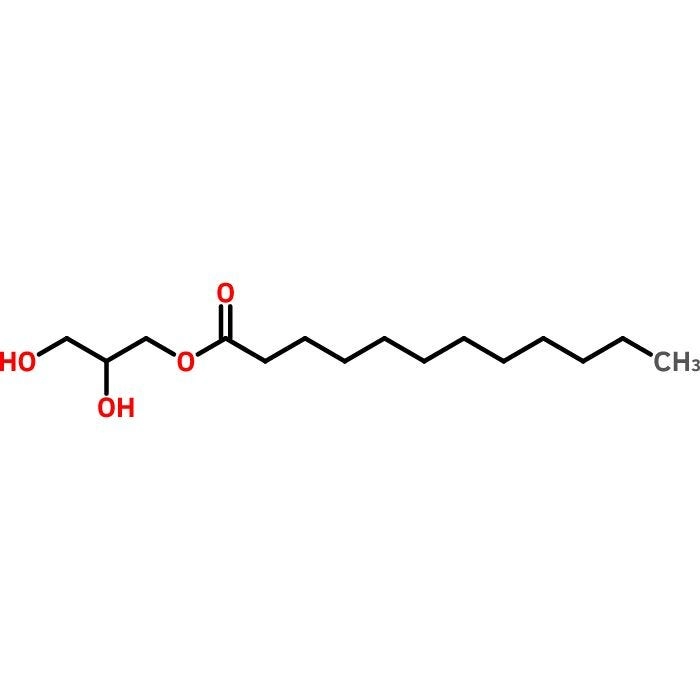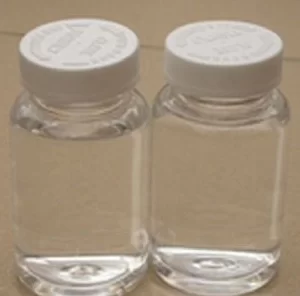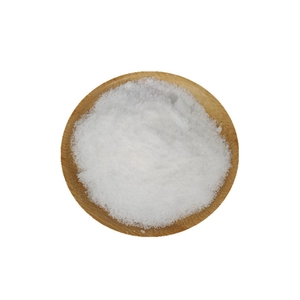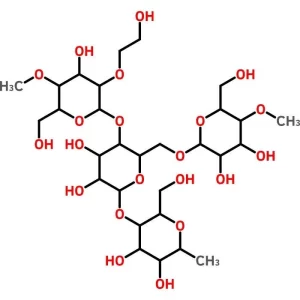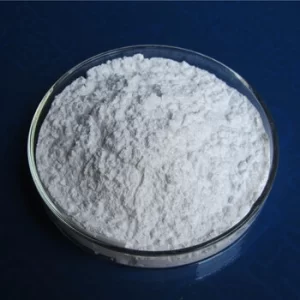What is Monolaurin CAS 142-18-7 Chemical Composition Physical Properties Natural Origin
Monolaurin CAS 142-18-7, also known as Glycerol Monolaurate, 1-Lauroyl-rac-glycerol, or Lauric Acid Monoglyceride, is a naturally derived compound widely valued in multiple industries. It is a monoglyceride formed from glycerol and lauric acid, making it a key coconut oil derivative with potent antimicrobial properties.
Chemical Composition and Structure
- Molecular Formula: C15H30O4
- Molecular Weight: 274.4 g/mol
- Chemical Identity: Monolaurin belongs to the class of monoglycerides where a single fatty acid (lauric acid) esterifies with glycerol.
- Synonyms: Glycerol Monolaurate, Glyceryl Laurate, alpha-Monolaurin, 1-monolauroylglycerol.
This structure gives monolaurin its unique characteristics as an effective natural preservative and surfactant emulsifier widely used in formulations requiring antimicrobial and stabilizing effects.
Physical Properties
- Appearance: White to off-white waxy solid or powder
- Melting Point: Approximately 60–63°C (140–145°F)
- Solubility: Slightly soluble in water, high solubility in lipids and oils, which enhances its function in food, cosmetic, and pharmaceutical applications.
- Odor: Mild fatty odor typical of fatty acid derivatives.
These physical traits lend monolaurin versatility, enabling it to be used as an ingredient that can blend well in various formulations across industries.
Natural Origin and Source
Monolaurin is primarily sourced from natural fats such as coconut oil and palm kernel oil. The monoglyceride is extracted or synthesized by esterifying glycerol with lauric acid found abundantly in these oils. This natural origin supports its use as a safe and sustainable ingredient, making it popular among health-conscious consumers and manufacturers aiming for clean-label products.
Monolaurin CAS 142-18-7 is a high-purity, naturally derived compound combining glycerol and lauric acid. Its physical and chemical properties make it an effective antimicrobial, emulsifier, and preservative, trusted across food, cosmetics, pharmaceuticals, and dietary supplements. Its natural coconut oil origins highlight its appeal as a clean and sustainable ingredient.
Key Applications of Monolaurin CAS 142-18-7
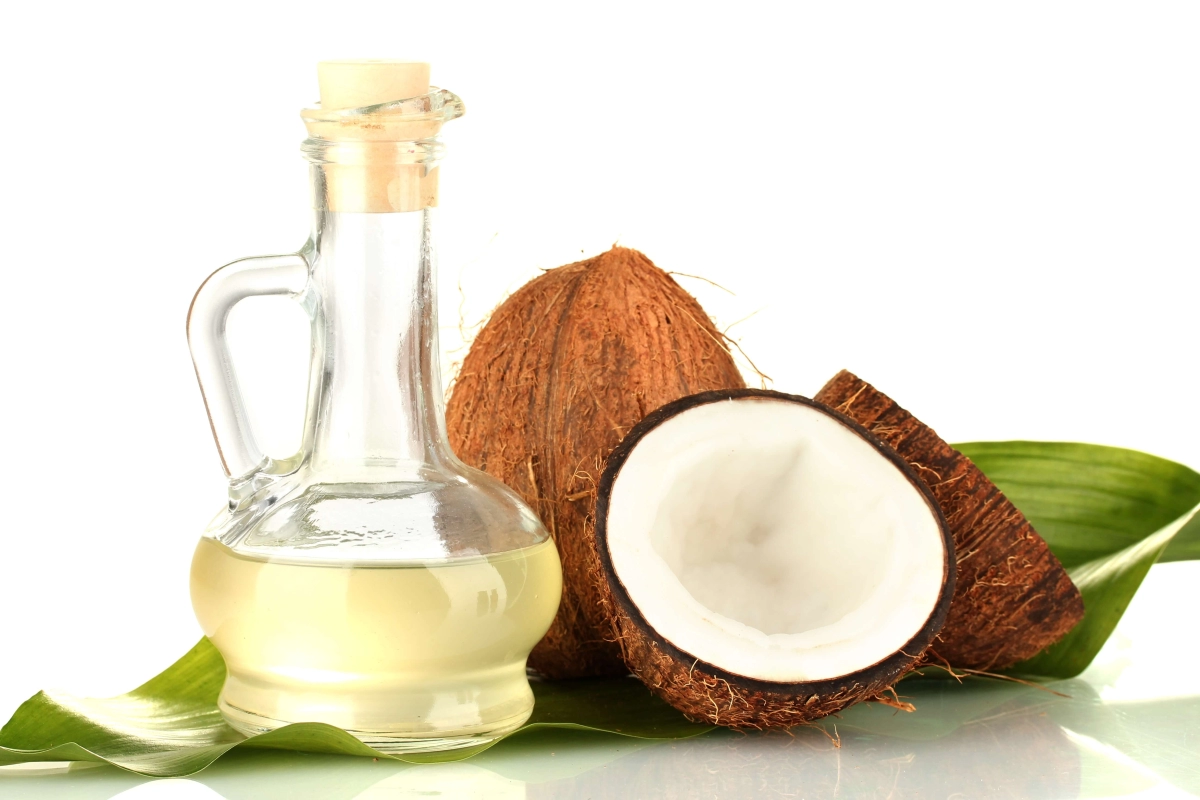
Monolaurin, also known as Glycerol Monolaurate or Lauric Acid Monoglyceride, is a versatile ingredient widely used across several industries due to its natural antimicrobial and emulsifying properties. Here’s where Monolaurin makes a real impact:
Food Industry
- Natural Preservative: Monolaurin acts as an effective natural preservative, helping extend shelf life by inhibiting bacteria, yeast, and molds in packaged foods.
- Emulsifier and Surfactant: It improves texture and stability in sauces, dressings, and baked goods, facilitating a consistent product quality.
- Coconut Oil Derivative: Since it’s derived from coconut oil, it fits well with the clean-label demand seen in many food products in the U.S.
Cosmetics
- Antimicrobial Compound: Used in skincare and personal care products, Monolaurin helps reduce harmful microbes, supporting skin health.
- Emulsifying Agent: It stabilizes creams, lotions, and shampoos, improving product feel and shelf life without synthetic additives.
Pharmaceuticals
- Antiviral and Antibacterial Agent: Due to its bioderived antimicrobial nature, Monolaurin is incorporated in topical formulations and pharmaceutical excipients to enhance product safety.
- Immune Support Supplement Component: It’s often included in immune support products for its ability to help manage pathogens in the body.
Dietary Supplements
- Immune Support: As a popular ingredient in dietary supplements, Monolaurin supports digestive and immune system health, valued for its natural origin and safety profile.
- High Bioavailability: It is quickly absorbed, making it effective in supplement forms like capsules, powders, or liquids.
Animal Feed
- Growth Promoter and Pathogen Control: Monolaurin is used in animal feed to improve gut health and reduce harmful bacteria, helping promote better growth rates and overall animal well-being.
- Natural Alternative to Antibiotics: Being a natural compound, it offers a sustainable solution for reducing antibiotic use in livestock.
Monolaurin CAS 142-18-7 is a multifunctional ingredient that fits the trends and regulations within the U.S. market, supporting clean label, sustainability, and product efficacy demands across food, cosmetics, pharmaceuticals, supplements, and animal feed industries.
Benefits of Monolaurin CAS 142-18-7 Antimicrobial Properties Bioavailability Safety Sustainability
Monolaurin, also known as Glycerol Monolaurate or Lauric Acid Monoglyceride, offers a range of important benefits that make it a sought-after ingredient across various industries. Here’s a closer look at why Monolaurin CAS 142-18-7 stands out.
Powerful Antimicrobial Properties
One of the most notable benefits of Monolaurin is its broad-spectrum antimicrobial action. It effectively combats bacteria, viruses, and fungi by disrupting their lipid membranes. This makes it a natural preservative and an excellent choice for use in:
- Food products to extend shelf life safely
- Skincare and cosmetic formulas as a natural antimicrobial agent
- Pharmaceuticals for immune support and infection control
Its natural origin from coconut oil makes it an attractive alternative to synthetic preservatives, appealing to manufacturers focused on clean-label products.
High Bioavailability for Effective Absorption
Monolaurin’s structure as a monoglyceride enhances its bioavailability, meaning it is more readily absorbed and utilized by the body compared to many other fatty acid derivatives. This makes it valuable in:
- Dietary supplements aimed at boosting the immune system
- Functional foods and beverages that require efficient nutrient delivery
With better absorption, products containing Monolaurin can deliver consistent and reliable results for end-users.
Proven Safety Profile
Monolaurin is recognized for its excellent safety and tolerability. It is generally regarded as safe (GRAS) by the FDA and widely accepted in both food and pharmaceutical applications. It has a low toxicity profile and is well-tolerated even in higher doses, making it suitable for:
- Daily supplements
- Cosmetics applied to sensitive skin
- Animal feed formulations
Safety in use enhances consumer confidence and regulatory compliance for manufacturers.
Commitment to Sustainability
Derived primarily from renewable sources like coconut oil, Monolaurin supports sustainable production practices. Choosing this compound aligns with growing consumer and industry demand for eco-friendly ingredients. Benefits include:
- Reduced reliance on petrochemical-derived preservatives
- Lower environmental impact through biodegradable byproducts
- Support for sustainable agriculture and supply chains
By integrating Monolaurin into formulations, companies contribute to greener products and a healthier planet.
Monolaurin CAS 142-18-7 combines powerful antimicrobial activity, high bioavailability, proven safety, and sustainability. These qualities make it a superior choice for manufacturers serving the U.S. market focused on clean, effective, and responsible ingredients.
Why Choose Blissam for Monolaurin CAS 142-18-7
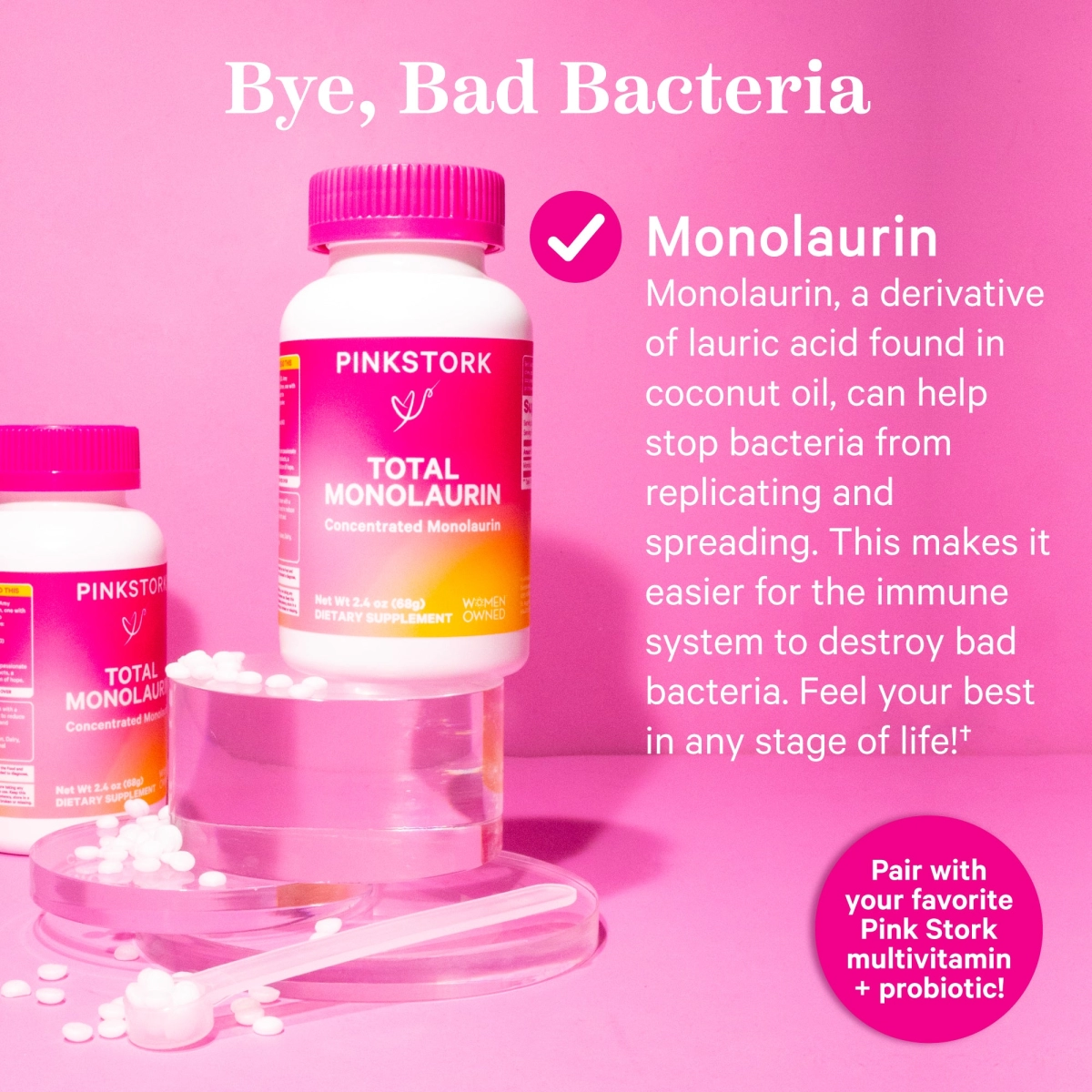
When it comes to sourcing Monolaurin CAS 142-18-7, Blissam stands out as a trusted CAS 142-18-7 supplier with a strong reputation in the U.S. market. Here’s why Blissam should be your top choice:
High Purity Monolaurin Guaranteed
We ensure that every batch of Glycerol Monolaurate (also known as 1-Lauroyl-rac-glycerol or Lauric Acid Monoglyceride) meets strict purity standards. Our monolaurin is manufactured with precision, delivering a consistent, high-quality product free from impurities. This is key for applications in food industry, pharmaceuticals, and dietary supplements where quality cannot be compromised.
Reliable Supply You Can Count On
We understand the importance of steady inventory for your operations. Blissam maintains a robust supply chain to provide you with monolaurin in volume, on time, and without disruptions. Whether you’re sourcing for cosmetics, animal feed, or other industries, we keep your production lines moving.
Custom Solutions Tailored to Your Needs
Your business has unique requirements, and Blissam is flexible in offering custom formulations and packaging. Whether you need specific concentrations, grades, or blends with other surfactants and emulsifiers, we collaborate closely to deliver solutions that fit your exact needs.
Industry Recognized Certifications
Our Monolaurin CAS 142-18-7 meets relevant U.S. regulations and carries certifications that matter to you and your customers—helping you maintain compliance and confidence in your products. From food-grade to pharmaceutical-grade standards, we support your regulatory needs.
Dedicated Customer Support
Blissam prides itself on responsive service. Our knowledgeable team is available to assist you with product details, technical support, and purchasing queries. We provide clear, straightforward answers so you can make informed decisions quickly.
Choose Blissam for your Monolaurin needs and benefit from a high-purity, reliable product backed by expert support and tailored solutions designed for the U.S. market.
Safety and Handling Guidelines for Monolaurin CAS 142-18-7
When working with Monolaurin CAS 142-18-7 (also known as Glycerol Monolaurate or Glyceryl Laurate), it’s important to follow proper safety and handling procedures to ensure product quality and workplace safety.
Storage of Monolaurin
- Keep in a cool, dry place away from direct sunlight and heat sources. Ideal storage temperatures are typically between 15°C and 25°C (59°F – 77°F).
- Store in airtight containers to prevent moisture absorption and contamination, as this helps maintain the purity and stability of this coconut oil derivative.
- Avoid exposure to strong acids, bases, or oxidizing agents which can degrade the product.
Safety Precautions
- Handle with standard protective equipment, such as gloves and safety goggles, to avoid skin or eye contact.
- In case of skin contact, wash thoroughly with water and mild soap. For eye contact, rinse immediately with plenty of water and seek medical advice if irritation persists.
- Ensure good ventilation in the working area to avoid inhaling dust or vapors, especially in powdered or concentrated form.
- Avoid ingestion of raw Monolaurin product unless it is specifically prepared for food or supplement use.
Regulatory Compliance
- Monolaurin CAS 142-18-7 complies with major regulatory standards applicable in the United States, including FDA guidelines for food-grade ingredients and dietary supplements.
- It is important to verify the Certificate of Analysis (COA) and ensure the product meets purity standards and is free from harmful contaminants.
- Use this antimicrobial compound in accordance with relevant industry regulations in pharmaceuticals, food, cosmetics, or animal feed to guarantee safety and effectiveness.
- Keep proper documentation for traceability and quality assurance purposes as required under local and federal regulations.
By following these safety and handling guidelines, you ensure the integrity of Monolaurin and protect your team and end consumers alike. For detailed product parameters and specific safety data sheets (SDS), feel free to contact our support team.
How to Purchase Monolaurin from Blissam
Ordering Process for Monolaurin CAS 142-18-7
Buying Monolaurin from Blissam is straightforward and customer-friendly. To start, you can easily place an order online through our website or contact our sales team directly via phone or email. Our team is ready to assist you with product details, bulk pricing, and delivery schedules.
Once your order is confirmed, we ensure fast processing and reliable shipping right to your location in the United States. Whether you need small batches or large volumes of glycerol monolaurate, we cater to various business sizes and demands.
Availability and Local Search Considerations
Blissam keeps a consistent stock of Monolaurin (CAS 142-18-7), sourced from quality raw materials like coconut oil derivatives and refined through strict quality controls. We serve food industry suppliers, pharmaceutical companies, cosmetic manufacturers, and animal feed producers across the U.S.
If you’re looking for a local supplier with nationwide reach, Blissam’s distribution network covers key U.S. regions, ensuring timely delivery and minimal lead time. Simply provide your ZIP code during your inquiry, and we’ll handle logistics for the smoothest service.
Price Match Guarantee for Monolaurin
We understand budget constraints and ensure our pricing for Monolaurin is competitive and fair. Blissam offers a price match guarantee to give you peace of mind. If you find the same grade and purity of 1-Lauroyl-rac-glycerol or Glyceryl Laurate at a lower price from a verified U.S. supplier, we will match or beat that offer.
This commitment ensures you get high purity, consistent quality, and outstanding service without overpaying. We stand behind our product and want you to feel confident in purchasing from a trusted CAS 142-18-7 supplier.
For further information on our product range and certifications, visit our product details page.
Frequently Asked Questions about Monolaurin CAS 142-18-7
What is Monolaurin CAS 142-18-7 used for
Monolaurin, also known as Glycerol Monolaurate or Lauric Acid Monoglyceride, is widely used across various industries. It serves as an antimicrobial compound and natural preservative in the food industry, cosmetics, pharmaceuticals, dietary supplements, and animal feed. Its ability to fight bacteria and viruses makes it a preferred ingredient for maintaining product stability and boosting immune support.
Is Monolaurin safe for consumption
Yes, Monolaurin is generally recognized as safe (GRAS) when used as directed. It’s a natural derivative of coconut oil and is known for its excellent bioavailability and safety profile. However, it’s important to follow recommended doses, especially in dietary supplements and food applications.
How should Monolaurin be stored
For best quality, store Monolaurin in a cool, dry place away from direct sunlight and moisture. Proper storage helps maintain its chemical stability and ensures it remains an effective surfactant emulsifier and antimicrobial agent.
Can Monolaurin be used in cosmetics
Absolutely. Monolaurin is a popular ingredient in skincare and cosmetic products due to its antimicrobial properties and mild nature. It helps protect formulations against microbial growth while also acting as a natural preservative.
What purity level does Blissam provide
Blissam guarantees high purity Monolaurin CAS 142-18-7, meeting stringent quality standards. This ensures optimal performance whether you use it in pharmaceuticals, dietary supplements, or animal feed.
How does Monolaurin enhance animal feed
Monolaurin acts as a natural antimicrobial additive in animal feed, promoting gut health and supporting the immune system of livestock. It helps reduce the need for antibiotics, aligning with sustainable farming practices.
What certifications does Blissam offer for Monolaurin
Blissam provides Monolaurin with industry-standard certifications, including ISO certification and compliance with FDA and other relevant regulatory bodies, ensuring you get a product that meets U.S. market requirements.
Who is the ideal supplier for Monolaurin CAS 142-18-7
Choosing a reliable supplier like Blissam means access to a consistent and high-quality supply, custom solutions tailored to your needs, and responsive customer support. This makes integration into your manufacturing or formulation process easy and efficient.
If you have more questions about Monolaurin CAS 142-18-7, feel free to reach out to us. We’re here to help you find the right solution for your needs.
